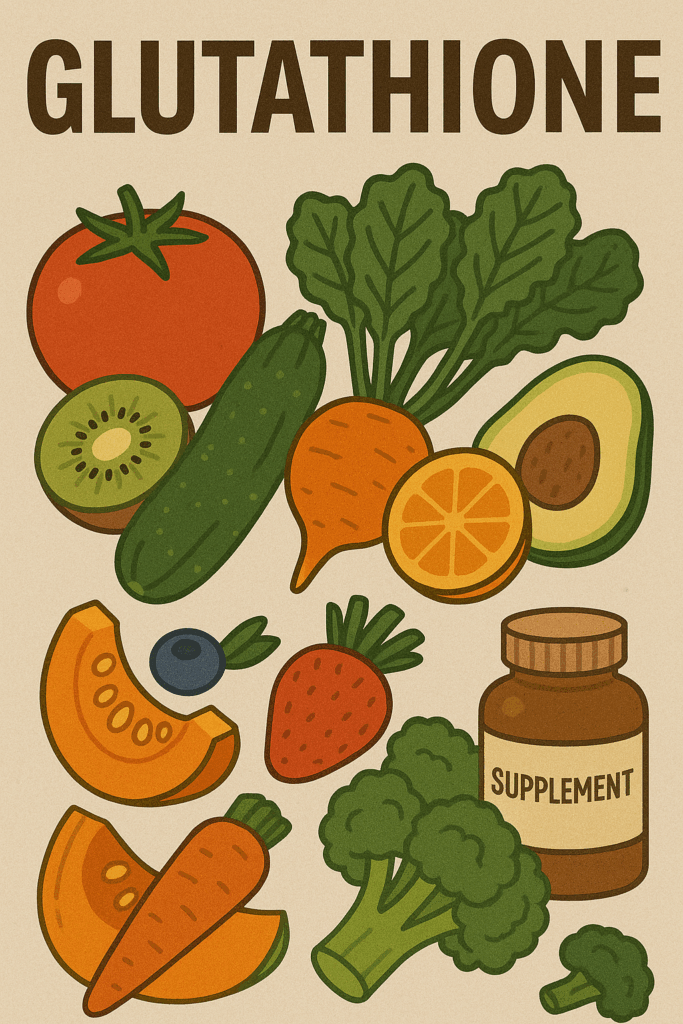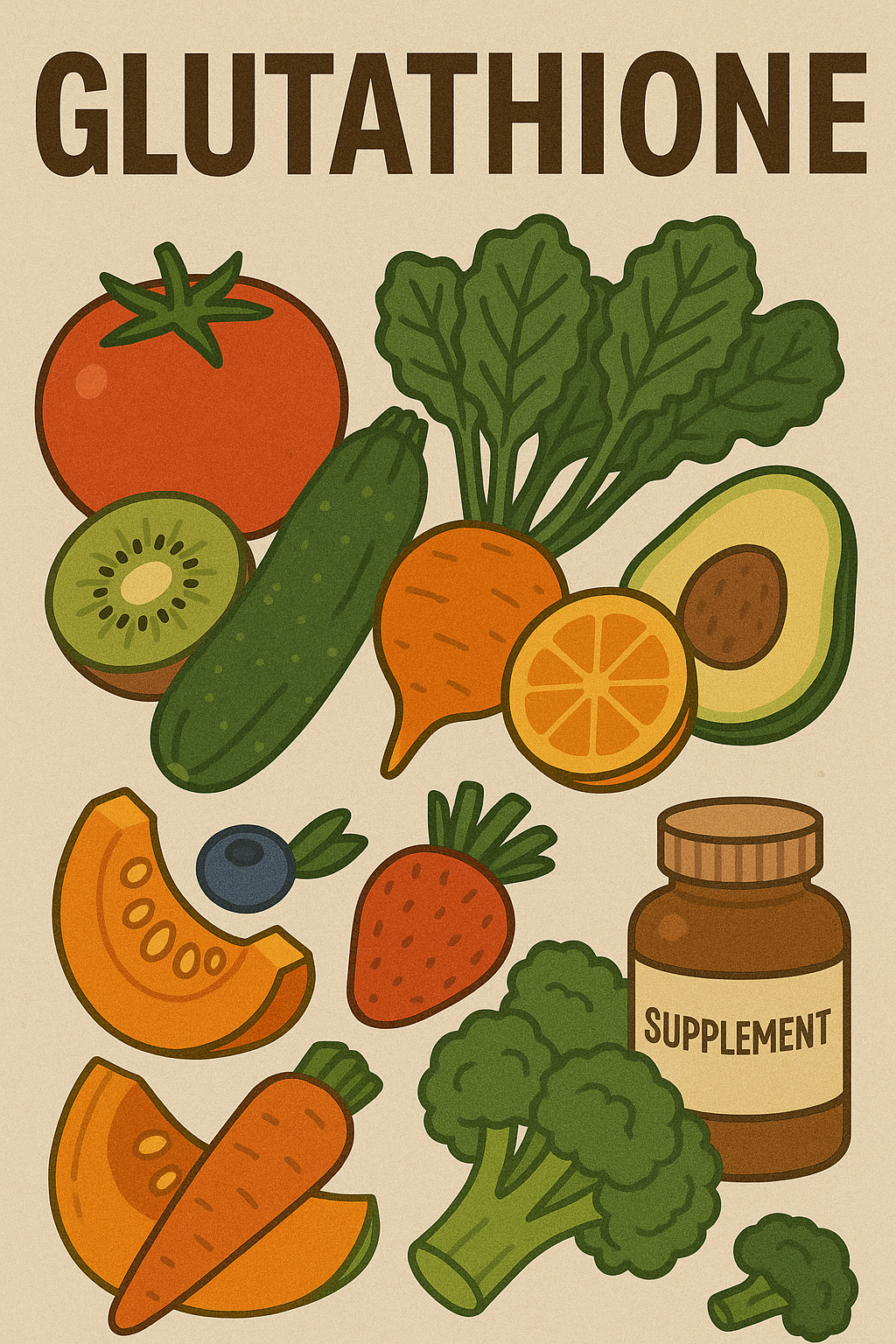Have you heard of glutathione being called the body’s “master antioxidant”? While the nickname sounds impressive, its real value may lie in how it supports multiple systems at once. From helping the body manage oxidative stress to assisting detoxification and immune defense, glutathione plays a complex, behind-the-scenes role in overall health.

1. What Glutathione Is and How It Works
Glutathione is a natural compound made in the body from three amino acids: cysteine, glycine, and glutamate. It may help protect cells from oxidative damage caused by free radicals — unstable molecules linked to aging and chronic conditions.
- Endogenous production: the liver produces most of the body’s glutathione.
- Regulation: levels may fluctuate due to stress, poor nutrition, pollution, or illness.
- Recycling function: it can restore other antioxidants like vitamin C and E back to their active forms.
2. Antioxidant Defense and Cellular Protection
Glutathione could help reduce oxidative stress — one of the main contributors to cellular aging. This defense may support healthy tissues, skin clarity, and organ resilience.
- Neutralizes free radicals before they damage DNA or proteins.
- Supports the body’s repair processes after inflammation or exposure to toxins.
- May assist in maintaining even skin tone by balancing oxidative reactions in cells.
3. Role in Detoxification
The liver relies heavily on glutathione during detoxification. It may bind to and help remove certain waste compounds, drugs, or environmental pollutants through the body’s natural filtration system.
- Supports phase II liver detox pathways.
- May assist in processing heavy metals or chemicals at low exposure levels.
- Could help maintain liver enzyme balance when under stress or medication load.
4. Immune Function and Recovery
Glutathione may support immune cell activity and antioxidant recycling during periods of stress or illness.
- Could help T-cell and natural killer cell function.
- Supports cytokine balance, potentially helping regulate inflammation.
- Low glutathione levels have been linked in studies to reduced immune response capacity.
5. Lifestyle Factors That May Influence Glutathione Levels
Daily habits may affect how efficiently your body produces or uses glutathione.
- Balanced protein intake (with cysteine sources like eggs, poultry, legumes) supports synthesis.
- Regular movement and adequate sleep may help optimize antioxidant capacity.
- Overexposure to alcohol, processed foods, or pollution could deplete glutathione reserves.
6. Dietary and Supplement Considerations
Food sources rich in sulfur or antioxidants may help the body maintain glutathione levels. Supplements exist but absorption and dosage vary widely among individuals.
- Garlic, onions, and cruciferous vegetables may support glutathione production naturally.
- Liposomal or N-acetylcysteine (NAC) supplements are sometimes used to enhance glutathione synthesis.
- Professional guidance is recommended before starting any supplement routine.
🌟 Conclusion
Glutathione may quietly support your body’s natural balance — acting as a shield against oxidative stress, a partner in detoxification, and a helper for immune recovery. Though it’s not a miracle compound, maintaining its levels through balanced habits and nutrition could gently strengthen your body’s inner defense system.
References and Further Reading
- National Center for Biotechnology Information — Glutathione Metabolism Overview
- Harvard Health Publishing — Antioxidants and the Body’s Defense
- Linus Pauling Institute — Glutathione Summary
Disclaimer
This article is for informational purposes only and not medical advice. Individual nutrient responses may vary by age, diet, and health conditions.
